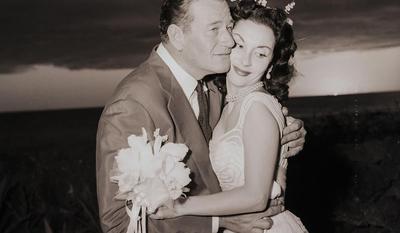Eldy Banda is not a name you hear on talk shows or see trending online, yet her story reaches far beyond headlines. She was a nurse, a mother, and an outspoken supporter of Native American rights, all while staying true to her Peruvian Quechua roots. She shaped her family with care and left a legacy that lives on through her children, including actor Benjamin Bratt. Eldy Banda’s life shows that ordinary acts, done with heart, can create extraordinary waves of change.
Growing Up in Peru and Holding Onto Heritage
Eldy Banda was born in Lima, Peru, and raised surrounded by the rich culture of the Quechua people. This heritage gave her a deep sense of pride and a strong identity that she carried with her, even when life took her far from her birthplace. At just 14, she moved to the United States, stepping into a new world that was unfamiliar and often unwelcoming.
Despite the challenges, she never let go of the culture that shaped her. Her Quechua roots became part of her daily life in America, something she passed down to her children as a quiet promise to keep their history alive.
Building a Life and Family Far From Home
In the U.S., Eldy met her husband, who worked as a sheet metal worker. Together they raised five children in a home that mixed hard work, cultural pride, and the warmth of family ties. While her husband provided with his craft, Eldy built the foundation of their household with love and a fierce belief in education and service.
For Eldy, family came first, but she saw family in a bigger way too. To her, community and family were connected. She made time to help those around her, showing her children that lifting others up is part of building a life worth living.
Nursing: A Career Built on Care
Eldy Banda chose nursing because it matched who she was. She cared about people deeply and wanted to help those in need. Patients trusted her kindness and colleagues respected her dedication. She was known not just for her medical skills but for her gentle way of making people feel seen and valued.
To Eldy, nursing was more than a job. It was a way to practice what she believed—that every person deserves care, respect, and dignity. Her quiet strength in the hospital made a difference one patient at a time.
Standing Up for Native American Rights
Eldy’s passion for helping others reached beyond hospital walls. In the late 1960s, a time of huge social change in America, she stepped into activism for Native American rights. One moment stands out from this part of her story: in 1969, she took all five of her children, including young Benjamin Bratt, to the Native American occupation of Alcatraz.
This bold act was about showing up when it mattered. It was about teaching her kids to stand beside communities fighting for recognition and justice. For Benjamin, that moment shaped the way he would later use his own fame to highlight Latino and Native American stories.
Passing Down Culture and Pride
Even in a new country, Eldy never let her children forget where they came from. She filled her home with reminders of their Quechua heritage—stories, traditions, and respect for their roots. That pride in culture gave her kids the strength to stand firm in who they were.
Benjamin Bratt has spoken often about how much his mother’s lessons shaped him. He credits her with inspiring him to choose roles that give honest voice to Latino and Native American experiences. Her influence echoes in every project he does that celebrates the stories Hollywood too often overlooks.
A Private Life with Big Impact
Eldy never sought the spotlight for herself. Fame wasn’t her goal. Her focus was on the real work—raising strong kids, comforting patients, and standing up when silence wasn’t enough. She faced barriers that would have stopped others. As an immigrant woman of color, she knew discrimination firsthand. But instead of letting it break her down, she used it as fuel to keep fighting for better.
In every part of her life, she showed that small acts of care and courage add up to a powerful legacy. She never shouted her story from rooftops. She didn’t need to. The people she helped and the family she built carried that story forward for her.
Overcoming Obstacles with Quiet Strength
Eldy Banda’s life was not an easy one. Moving to a new country, raising five children, working long shifts as a nurse, and pushing for social change all at once would test anyone. But Eldy met each test with a calm strength. She didn’t let hardship define her. She turned it into action that lifted up everyone around her.
Her story proves that true change doesn’t always come with fanfare. Sometimes it’s the steady voice, the comforting touch, or the decision to bring your children to stand on the front lines of a protest that makes all the difference.
A Legacy That Lives Beyond Her
Today, Eldy Banda’s name might not appear in news headlines, but her legacy lives on. You see it every time Benjamin Bratt speaks about cultural pride or takes on a role that shows the truth of Latino or Native American life. You hear it in stories her family shares about her love and resilience. And you feel it in the quiet courage of every person who dares to stand up for what’s right because someone like Eldy Banda showed them how.
Final Thoughts
Eldy Banda’s life is proof that you don’t need fame to make your mark. Her real wealth was in the people she cared for, the family she nurtured, and the heritage she made sure would never fade. Her journey shows that a life built on service, pride, and quiet courage can change the world—one family, one community, one act at a time.
